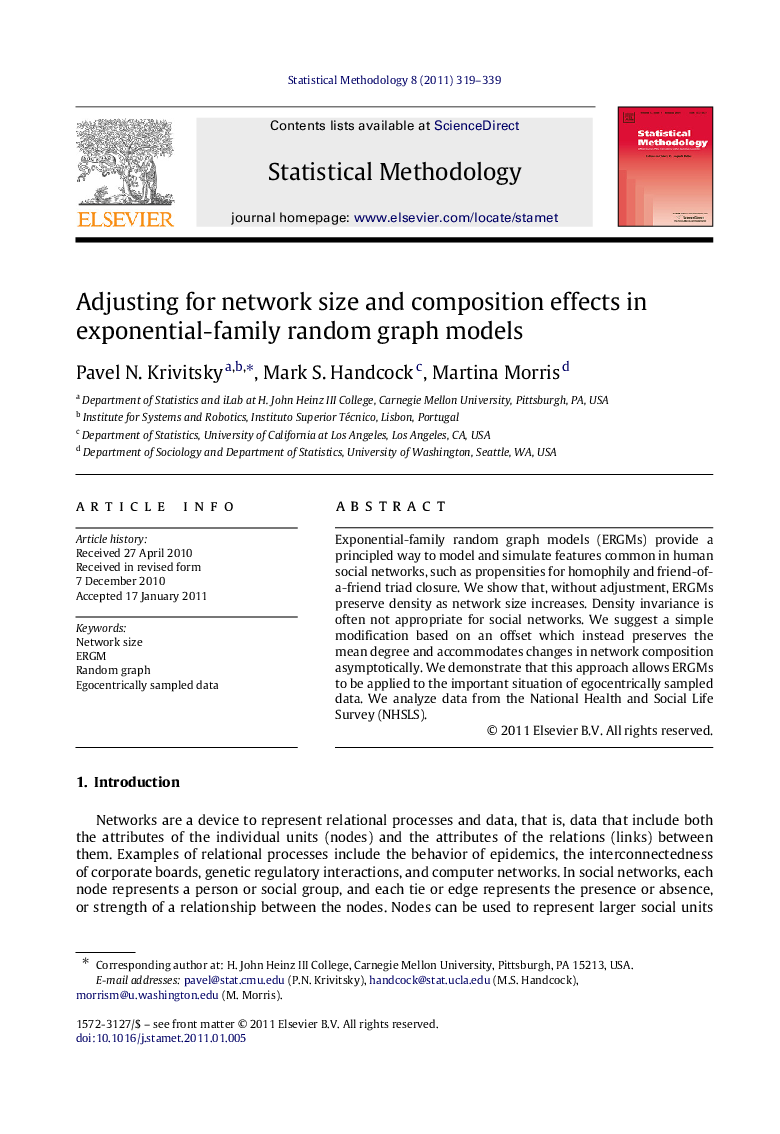| Article ID | Journal | Published Year | Pages | File Type |
|---|---|---|---|---|
| 1150980 | Statistical Methodology | 2011 | 21 Pages |
Abstract
Exponential-family random graph models (ERGMs) provide a principled way to model and simulate features common in human social networks, such as propensities for homophily and friend-of-a-friend triad closure. We show that, without adjustment, ERGMs preserve density as network size increases. Density invariance is often not appropriate for social networks. We suggest a simple modification based on an offset which instead preserves the mean degree and accommodates changes in network composition asymptotically. We demonstrate that this approach allows ERGMs to be applied to the important situation of egocentrically sampled data. We analyze data from the National Health and Social Life Survey (NHSLS).
Keywords
Related Topics
Physical Sciences and Engineering
Mathematics
Statistics and Probability
Authors
Pavel N. Krivitsky, Mark S. Handcock, Martina Morris,
